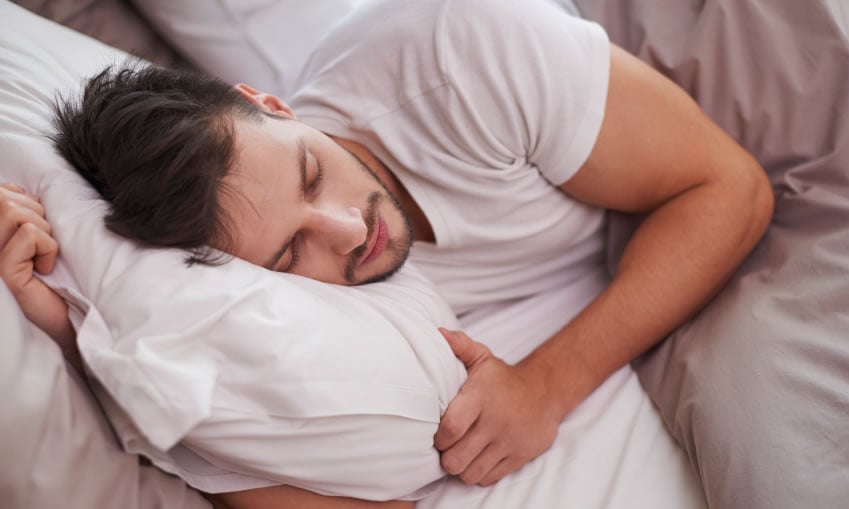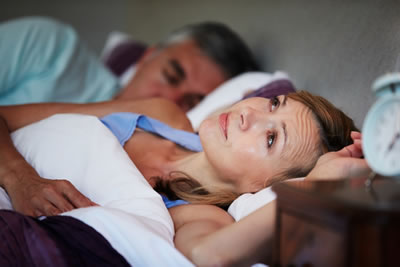3 Natural Sleep Remedies
While many Americans turn to prescription sleep aids in hopes of a better night’s sleep, there are other natural remedies to turn to instead.

While sleep issues may be common, doctors, researchers and scientists alike agree that consistent quality sleep should not be seen as a luxury that you treat yourself to every now and then, but rather an essential part of good health. Insufficient sleep – the lack of quality, restful sleep – has been linked to several chronic conditions, including obesity, diabetes, depression and heart disease, according to the CDC. In fact, the government organization considers insufficient sleep a public health problem. So, what can you do to get a better night’s sleep?

While many Americans turn to prescription sleep aids in hopes of a better night’s sleep, there are other natural remedies to use instead.
1. Bedtime rituals
The National Sleep Foundation, which refers to healthy sleeping habits as sleep hygiene, advised keeping to a strict schedule when it comes to bedtime. The most important thing is to adhere to a regular wake and sleep pattern each day of the week. Doing so will regulate your body’s natural clock and may aid in helping you fall into a deeper sleep and get a quality night of shut eye.
Furthermore, the amount of time spent in your bed may have more significance than you think. For those who have trouble sleeping, the foundation advised against spending more than 7 hours in bed and for those who experience sleepiness in the daytime, a minimum of 8 hours should be spent in bed each night.
In an effort to reinforce these sleep patterns, the NSF recommended practicing a relaxing ritual before bedtime. While relaxation techniques are different for everyone, they should be done away from bright lights and electronic devices. Reading, deep breathing techniques, drinking a cup of herbal tea and soaking in a warm bath are all examples of effective methods for de-stressing. Avoiding activities that are loud, exciting, high-energy or overly stimulating prior to your bedtime is best practice.
”Just 10 minutes of exercise daily can promote better sleep.”
2. Physical activity
Daily exercise can have a profound impact on your nightly slumber, according to the NSF. While vigorous physical activity is best, even just 10 minutes of aerobic exercise can promote better sleep hygiene, especially when performed on a regular basis. By reducing stress and tiring you out in a healthy way, exercise can help with more restful sleeping patterns.
However, it’s important to note that working out too close to the time you try to close your eyes may have the opposite effect. While it’s not the case for every individual, the NSF found that late-night exercising may over-stimulate the body and prevent you from winding down for bed. Early morning workouts can help regulate your sleep schedule and early afternoon activity gives your body plenty of time to cool down.

3. Healthy eating habits
The importance of eating healthy seems to crop up time and time again and it may be safe to conclude that there’s not much a fresh bowl of fruits and vegetables can’t do for you. While childhood remedies for falling asleep include a glass of warm milk or a small snack, there is now concrete research showing that the right diet can promote quality sleep, even after just a few nights.
According to a recent study published in the Journal of Clinical Sleep Medicine, titled Fiber and Saturated Fat Are Associated with Sleep Arousals and Slow Wave Sleep, dietary patterns play an important role in the quality of sleep. Researchers found that those who consumed diets high in sugar and saturated fat and low in fiber, had less restorative sleep and experienced more bouts of waking and stirring.
Over the course of five days the sleeping patterns of 26 healthy participants, both male and female with no history of sleep problems, were monitored by researchers. The participants were analyzed after eating two very different diets. For the first four days, participants in the study were given meals designed by nutritionists that were high in fiber and low in fat and sugar. On the final day, participants were allowed to eat whatever they selected – meaning much more saturated fats, sugars and carbohydrates.
Results were quite telling – just one day of unhealthy eating resulted in sleep trouble. When participants consumed the high-quality diet provided by researchers, they fell asleep almost twice as quickly and experienced more sound sleep with less disruption.
While it is believed that proper diet and healthy eating habits could be used to manage sleep disorders, more testing and research is necessary, concluded researchers.
Quality sleep at Pritikin Longevity Center
The importance of quality sleep is a crucial part of optimal health, which is why it’s such an important piece of the puzzle at Pritikin. Through the Pritikin Eating Plan, which is filled with whole foods that are naturally rich in fiber and naturally low in sugar, salt and saturated fat, and the Exercise Plan focused on cardiovascular conditioning, strength training and flexibility, our trained experts can help you adopt better sleeping habits. When you’re exercising regularly and consuming whole foods such as the fruits, vegetables, legumes, starchy vegetables and whole grains that make up the Pritikin Eating Plan, you’re much more likely to get a better night’s sleep.